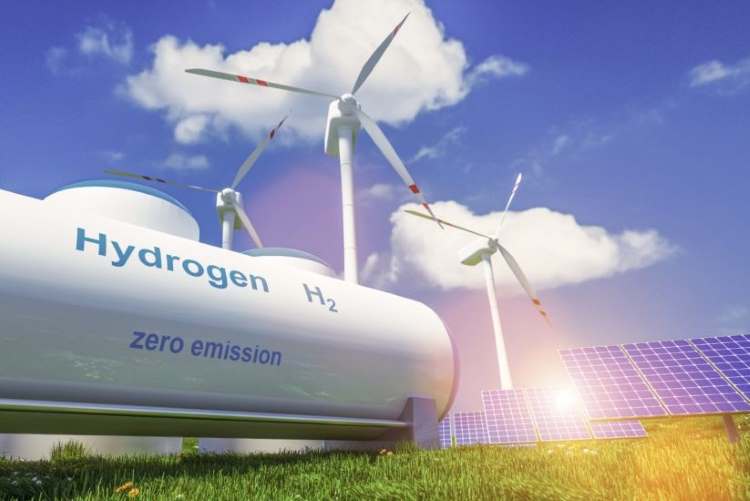
India a global leader in ESG: In December, the United States Department of Energy unveiled groundbreaking news that sent ripples of hope throughout the world. I had the privilege of witnessing a post-announcement webinar that illuminated the path to ubiquitous, affordable energy sources at an unprecedented scale. It is a future where a significant portion of our energy base load can be harnessed at remarkably low costs, potentially democratizing access across the globe. This transformative leap is powered by fusion technology, a source that promises to generate more energy than it consumes, albeit with considerable energy input—a pathway we had not considered until now.
The emergence of fusion energy as a potential game-changer cannot be overstated. While fusion technology requires a phenomenal amount of energy input, the prospect of generating more energy than it consumes holds immense promise. This not only addresses our growing energy demands but also mitigates the environmental impacts associated with traditional energy sources. The United States’ commitment to advancing fusion energy technology signals a significant step toward achieving global sustainability goals.
Equally exciting is India’s embrace of innovative approaches to green energy. The conversion of municipal waste into hydrogen and green ammonia has evolved from a theoretical concept into a tangible reality. Multiple companies are now actively pursuing this pathway, showcasing India’s commitment to sustainable energy solutions. As we transition toward net zero future by 2070, the conversion of waste into clean energy is a critical step forward.
READ I Borrowing costs rise for Indian firms, signalling financial stress
Corporate responsibility and ESG initiatives
The race to net zero is not solely a government endeavour; it is a shared responsibility involving corporations, individuals, and communities. Every entity emitting greenhouse gases or engaging in activities that contribute to pollution must change course and work toward achieving net positivity. ESG initiatives are no longer viewed as costly burdens but as opportunities for competitive advantage. Forward-thinking companies are recognising that integrating environmental, social, and governance considerations into their strategies is not just responsible but profitable.
Innovation is the driving force propelling us toward a sustainable future. Consider the remarkable journey of Toyota, which has transitioned from internal combustion engines to hybrid vehicles and now to hydrogen-powered cars. This relentless pursuit of cleaner technologies sets an inspiring example for industries worldwide. The private sector’s commitment to innovation is essential in realizing our sustainability goals.
Revolutionising agriculture with technology
Agriculture, a vital sector in India, is also witnessing revolutionary changes. The ability to track every piece of produce, from apples to watermelons, at scale through QR codes is transforming the industry. Moreover, these codes can embed a plethora of data, allowing for greater transparency and traceability throughout the supply chain. This innovation is redefining responsible production and consumption.
One of the most promising trends on the horizon is the plummeting cost of technology deployment. Similar to the telecom revolution in India, the fall in technology and storage costs is democratising access to information and driving innovation. The adoption of web 3.0 and 5G technologies is accelerating, and the government’s vision for 6G reflects India’s commitment to embracing emerging technologies for a more sustainable future.
The awareness that time is running out is growing globally, with extreme weather events serving as stark reminders of our planet’s precarious state. Europe’s scorching heatwaves and California’s devastating wildfires underscore the urgency of addressing climate change. Responsible consumption and production practices are no longer mere buzzwords; they are immediate necessities.
Lastly, the convergence of frameworks and standards for ESG reporting is propelling us toward greater transparency and accountability. Integrated thinking, domain-specific frameworks, and science-based targets are becoming the norm. The recent launch of S1 and S2 by the IFRS marks a significant milestone in this convergence. The fact that the US is actively participating through the TCFD reflects a united commitment to addressing climate change.
India, with its rich tradition of innovation and commitment to sustainable practices, is poised to lead the way in the global ESG journey. The world is changing, and so must we. The positive environmental factors and global convergence in ESG standards are paving the way for a sustainable, equitable, and prosperous future. The time for action is now, and India is ready to take the lead. As we embrace fusion energy, convert waste to green resources, champion corporate responsibility, and innovate across sectors, we demonstrate that the path to a sustainable future is not just a vision but a reality within our grasp.
Shailesh Haribhakti is a Chartered and Cost Accountant, an internal auditor and a certified financial planner. He is a board chairman, audit committee chair and independent director at some of the country's most preeminent organisations. He is a thought leader on the Indian economy and public policy.

